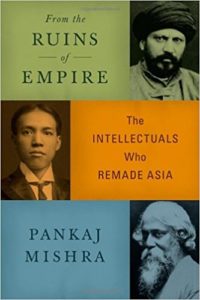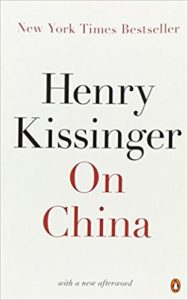In Omar’s excellent post I was reading his dissection of Pankaj Mishra’s latest book. It was quite funny as I was reading it (and disagreeing with Omar in the role of Muslim power in South Asia, the Mutiny was done in the name of the Mughal Emperor not some petty Maratha, Rajput or Sikh despot) I thought to myself at least nothing was written about the Bahai Faith. Literally as I thought it then came to the section about Jamal-Uddin Afghan, the Babis & the Bahá’í Zarthushti Yazdi emigres to Bombay (my grandmother’s people).
Since I am a Baha’i it’s important on such sensitive matters to always make sure that the correct perspective is shared for no misunderstanding. As an aside the best way to see Urdu is like the Taj Mahal; the supreme symbol of the glories of Muslim-Mughal India. Hindi can be likened to the reconstructed Ram Temple (Inshallah) on the debris of Babri Masjid; gaudy, tacky & built on the ashes of something so beautiful but now sadly forgotten by an angry minority.
I usually am quite a fan of Pankaj Mishra (he makes a lot of sense tbh) but I don’t see the need to slander the Babis & Zarthustis in reference to Jamal-Uddin Afghan.
Of course in 1850 the Bab had been executed and the Babi community was in disarray. The interregnum, is to speak, only came to an end in 1863 when Baha’u’llah proclaimed his Station in the Garden of Ridvan in Baghdad (the King of Festivals).
While it is satisfying to note that so many South Asian Muslim philosophers (JA, Allaja Iqbal, Ahmediyyah) were so impacted by the Bahai Faith (& it’s earlier predecessor Babi religion wholly subsumed by the Baha’i Faith) it is sad to see that they followed the wrong path and stayed as Muslims in Islam (the Bab almost immediately abrogated the Holy Quran so we had diverged from Islam almost immediately on inception). Characters like the above sort of remind me of the desi equivalents Anakin Skywalker or Kylo Ren, exposed to the Force but instead opting for the Sith..
It is also interesting to note the strong intellectual relationship between Iranian thought and the South Asian Muslim community. The febrile atmosphere of the 1840’s-1850’s (where Babism was feared to have consumed Persia) had such strong impacts on the precursors of the Pakistan movement (it could be why the Pakistani Baha’i community are an especially patriotic community).
Incidentally Bahá’ís are only reviled in Iran (& it’s client state Yemen) but otherwise in the wider Islamic world they fare pretty well. Pakistan is especially tolerant and credit to Pakistan that it was a conduit for fleeing Iranian Bahá’ís in the aftermath of the Iranian Revolution.
The Bahai community owes a great & everlasting debt to Pakistan.
Of course this is not to negate that the largest Baha’i community in the world is in India and our beloved Lotus Temple is in New Delhi (as Old as me; 33yrs from 1984).
As always the Faith bridges the divide; maybe India & Pakistan will only heal through the balm of Baha’u’llah.


